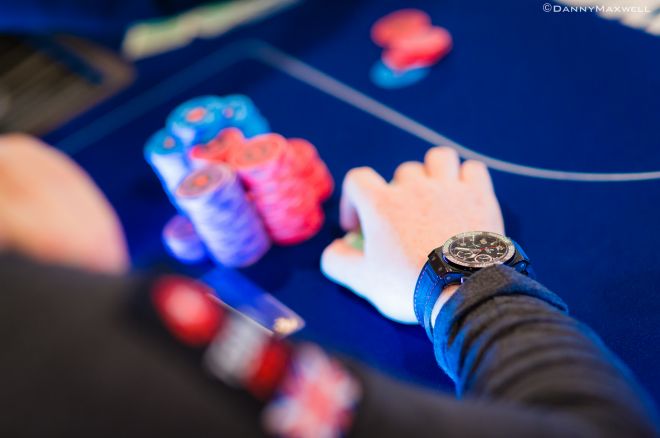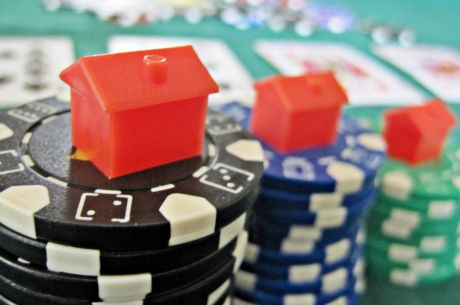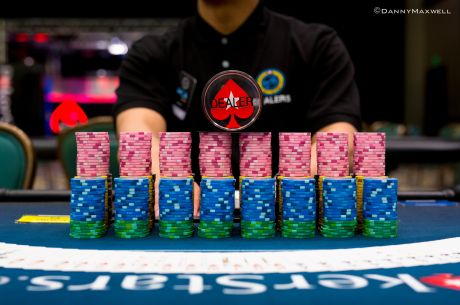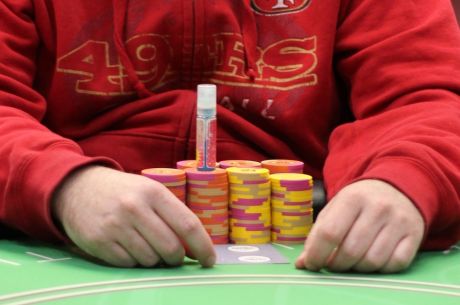"Investing" In Your Game: Applying TradingHD's Timing Tips To Your Poker Game

Analogies between poker and investing are endless. Many of the world's best poker players speak of the game in terms that evoke the ins and outs of investing, showing how at every decision point �� in a given hand or tournament, when choosing a game or stakes at which to play, or when managing a bankroll �� they are essentially weighing risk and reward much like an investor might do.
In an article titled Timing Is Everything: Making the Most of Your Stocks, Lex van Dam of TradingHD focuses primarily on the issue of timing in investing �� another central concern in poker.
The article explains how a lot of those who advise investors talk about trusting in the long term �� how a sound investment strategy often involves buying and then waiting out lengthy periods marked by short-term swings in order to cash out much later following expected long-term growth for the company whose stock has been bought.
Trusting in the long term "might well be true in an academic sense," writes van Dam, "but the fact is, for a typical small investor, this line of thinking could lead to significant losses."
He goes on to explain how many smaller investors can't necessarily "withstand the test of time" with their investments, lacking the resources to invest for long enough periods to take advantage of expected long-term growth. All of which makes it much more important for such investors to pick their spots well when buying and selling �� to act knowledgably, buying when a company is growing, selling when it fades (or appears ready to fade).
As van Dam says, "the main determinant of making money is being able to get your timing right." That's easier said than done, of course, but poker players well know how much good or bad timing can affect your bottom line.
As Mike McDermott famously says in Rounders, "you can't lose what you don't put in the middle... but you can't win much either." When you buy into a poker game, you necessarily have to put your chips at risk in order to win more of them �� there's no other way to profit at the game.
Similarly, when investing in the stock market, it is imperative to understand that you're buying stocks not to keep them forever, but with an intention one day to sell them, ideally at a price that is higher than what you paid.
That's actually a fundamental precept of investing that gives some small investors difficulty. Like poker players who become "married" to hands they should be folding �� or who become too risk-averse when it comes to putting their chips in the middle �� some who invest in the stock market have a hard time letting go when they should. As van Dam says, "never fall in love with a stock."
Understanding that principle �� that when you buy a stock, you'll eventually be looking for a spot to sell it �� small investors are under a different sort of pressure than those with deeper pockets who can afford to sit back and ride out longer periods of owning their stocks and enjoying the benefits of going long term.
Think of a poker player who is serious about the game but is not a professional or full-time player �� in other words, most of us. The player can only play a limited number of tournaments per year, making the particular investment (entry fee) made with each one that much more significant.
Sure, you can tell that player how it is perfectly normal for even skilled tournament players to go 20 tournaments in a row without cashing. But what if that player isn't even playing 20 tournaments in a single year? The player might perfectly understand how variance in poker dictates we mustn't be overly concerned with short-term results, but looking at it another way, the short-term is really all this player has.
All of which makes selecting the best tournaments to play �� events with right-sized buy-ins, featuring favorable fields, and being accommodating in other ways (e.g., location, the calendar, etc.) �� even more crucial for the part-time player than the full-time pro.
Another comparison from poker that highlights the importance of timing when investing is the situation of being short-stacked during the latter stages of a poker tournament.
When down to an all-in-or-fold situation, it becomes very important for a poker player to weigh the situation carefully before shoving. But even if that player picks the best possible spot to commit his or her chips, there is short-term risk to sweat.
Say you've open-pushed with the A?A? and the big stack in the blinds calls you with his K?7?. Once the community cards are dealt, you're going to win more than 88 percent of the time (so says the PokerNews Odds Calculator). But a little over 11 percent of the time, you'll lose.
As a short-stacked player, you only had one stack with which to invest. There was no "long term" here in this one tournament, so if the investment somehow fails, there's no continuing.
Read more about the importance of timing as well as other investing advice over at TradingHD. Meanwhile, understand that while focusing on the long term and not being overly "results oriented" from hand to hand is good advice, you still want to pick your spots well and "get your timing right" when it comes to each individual decision to invest those chips.
Want to stay atop all the latest in the poker world? If so, make sure to get PokerNews updates on your social media outlets. Follow us on Twitter and find us on both Facebook and Google+!
In this Series
- 1 "Investing" In Your Game: Applying TradingHD's Timing Tips To Your Poker Game
- 2 "Investing" In Your Game: TradingHD's Advice for Developing Your Poker Mind
- 3 "Investing" in Your Game: Considering the Psychology of Risk in Poker with TradingHD
- 4 "Investing" in Your Game: TradingHD on Risk Management in Poker
- 5 "Investing" in Your Game: TradingHD on Acting With Deliberation in Poker









